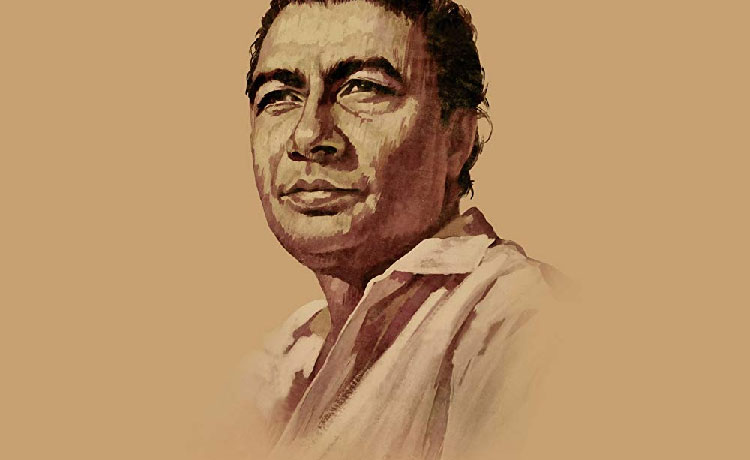
“Ashqon mein jo paaya tha
Wo Geeton Mein Diya Hai
Is Par Bhi Suna Hai Ke
Zamaane Ko Gila Hai”
Would have been Sahir’s response to the technicality, however pertinent, that “creating new poetic expressions within the song tradition” doesn’t count as literature. We appreciate the technical distinction but would rather celebrate Bob Dylan being awarded the Nobel Prize for Literature – after all this is what this blog is all about! And vote for Sahir Ludhianvi being posthumously awarded!.
Abdul Hamid, the son of a Zamindar who rebelled against his dad and chose a life of struggle because he ill treated his wife and Sahir’s mother is undoubtedly an icon par excellence. He adopted the pen name “Sahir” or a leading light – which is what all his progressive expressions where! He also adopted the surname “Ludhianvi” to bring fame to his home city – but this practice which became a tradition we shall chat upon later. It is the Sahir part which deserves recognition.
He was the first lyricist to insist on being paid one rupee more than the music directors or Lata or get his name on the film posters. He wrote songs before the tune was composed – changing the practice in films where lyricists wrote to the meter. He was a poet before he became a lyricist.
It is difficult to do justice to a Sahir in one post that doesn’t run into a few thousand words so we will probably do it in a series. But here is just a quick overview of the phenomenal range of issues outside romance and heartbreak:
– on injustice to women (aurat be janam diya mardon ko, Mardon ne use bazaar diya; log aurat ko jism faqt samajh lete hain)..
– a carefree disposition to life (main zindagi ka saath, zindagi hansne gaane ke liye hai, mile na phool to, ek raasta hai zindagi)
– man on the street (asmaan pe hai khuda, chino-arab hamaraa)
– tapori – (denewala jab bhi deta, oonche soor mein, chahe koi khush ho, sar jo Tera chakraye)
– complicated relationships (chalo ek baar phir se, chal kahin door nikal jaaye, ye dil tum bin)
– non-romantic relationships (chanda re, mere bhaiyya Se kehna, mere ghar aayi ek nanhi pari, tu mere saath rahega munne)
– faith and god (sansaar se bhaage phirte Ho, aana hai to aa)
– workers (Saathi haath badhana saathi re, mere mehboob kahin aur mila kar)
– humanitarian values (tu hindu banega na musalmaan banega, jinhe naaz hai hind par, allah tero naam)
– standing up for love (jurme ulfat pe hame log sazaa dete gain); standing up in society (pochhkar ashq apni aankho Se), standing up to a society that lacks empathy (“ye duniya agar mil bhi jaaye”), standing up for yourself (“apne pe Bharosa hai to ye daao lagale”),
– the myriad emotions of the human heart -diffidence (hum main hai kya jo koi haseena hame chahe); emotional turmoil (duniya Kare sawaal to hum kya jawab de); excruciating pain (ashqon mein jo paaya tha)
It is impossible to do justice in one blog – his contribution and prolific pen far exceeds Bob Dylan and probably reaches more no of people (but only in two countries). Sahir clearly checks all the boxes for bringing new and multiple idioms of expression not only enriching literature but life and society as well. And just because everyone understands him is no reason to discount its literary merit! Here is to recognising his contribution which IS literature.
I end with one song (modifying one word mazdoor with majrooh ) written by Hassan Kamal (in the film Mazdoor) in ode of all lyricists – (note – cheesy alert!).
Hum Majrooh (wounded) Is Duniya Se
Jab Apna Hissa Maangenge
Ek Baag Nahin Ek Khet Nahin
Hum Saari Duniya Maangenge!
